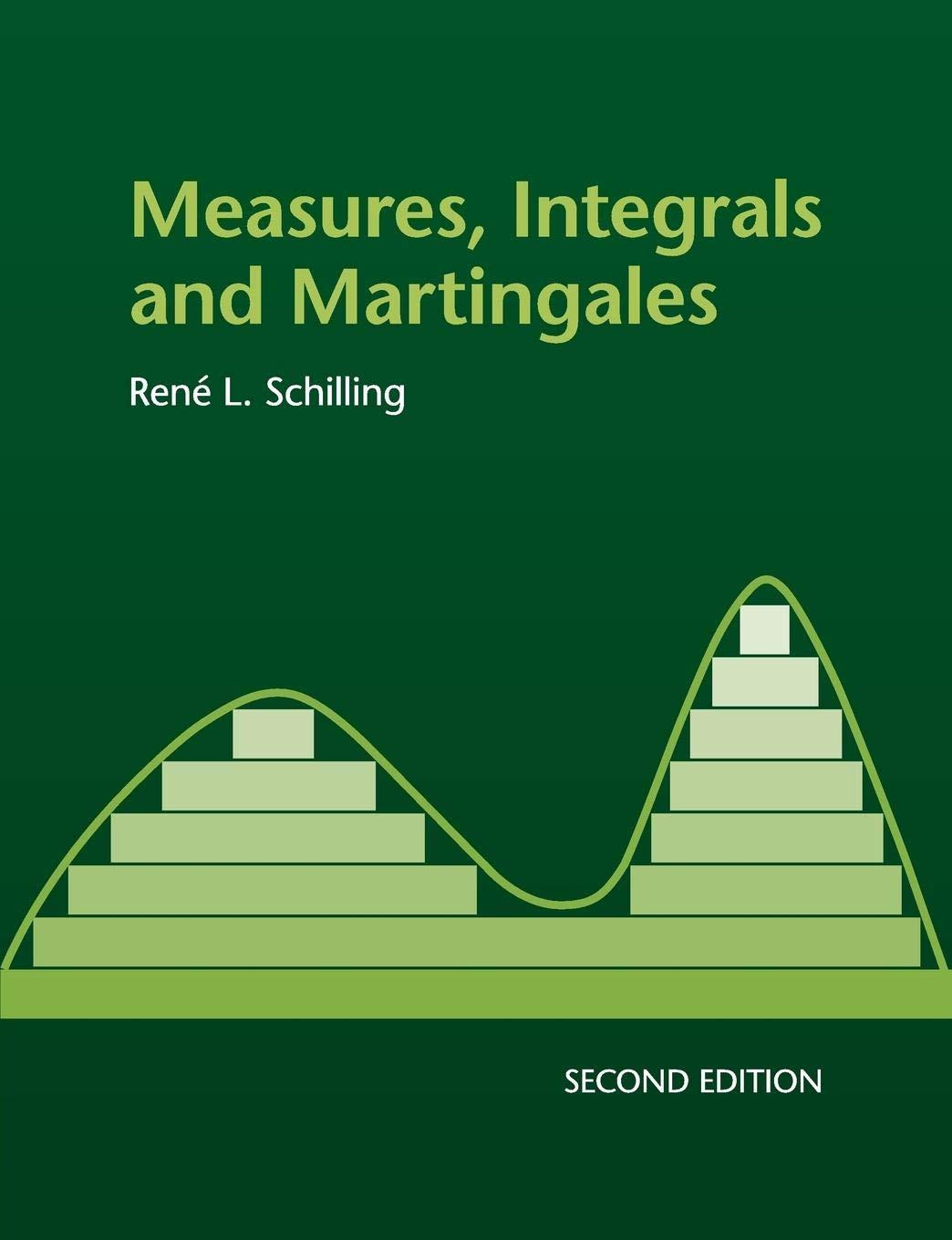Consider the following variation of Cantor's set: fix (r in(0,1)) and delete from (I_{0}=[0,1]) the open interval
Question:
Consider the following variation of Cantor's set: fix \(r \in(0,1)\) and delete from \(I_{0}=[0,1]\) the open interval \(\left(\frac{1}{2}-\frac{1}{4} r, \frac{1}{2}+\frac{1}{4} ight)\). This defines the set \(I_{1}\) consisting of two intervals, \(\left[0, \frac{1}{2}-\frac{1}{4} ight]\) and \(\left[\frac{1}{2}+\frac{1}{4} r, 1ight]\). We get \(I_{2}\) by removing from each of these intervals the open middles of length \(r / 8\) and \(I_{3}\) by removing all open middles of length \(r / 32\). This defines recursively the sets \(I_{1}, I_{2}, \ldots\) Find the length of the interval \(I_{n}\) and of the generalized Cantor set \(I:=\) \(\bigcap_{n=0}^{\infty} I_{n}\). Is \(I\) empty?
Fantastic news! We've Found the answer you've been seeking!
Step by Step Answer:
Related Book For 

Question Posted:





